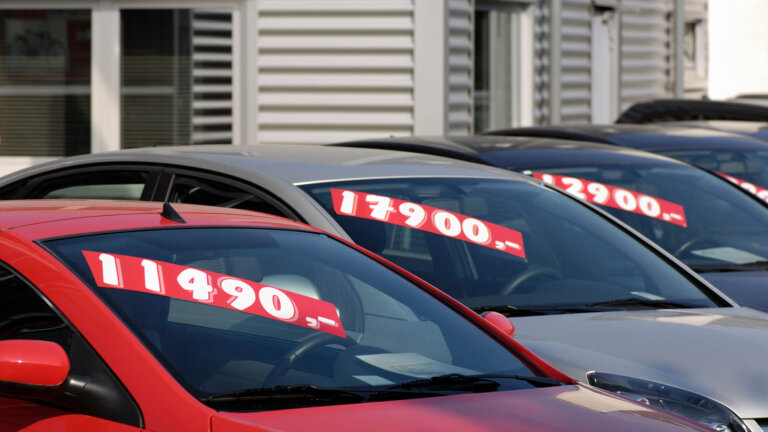Il y a plus amusant comme voyage que de partir en quête de son assurance auto. Et pourtant, c’est une étape nécessaire, qui peut faire économiser – ou perdre – de grandes sommes d’argent, et vous apporter des aides – ou des ennuis – juridiques. Vous ne pouvez pas prévoir ce qui peut arriver sur la route, mais vous pouvez vous prémunir des conséquences. Il existe tant de produits, de formules et de compagnies différentes qu’un petit peu de lumière dans tout ça n’est pas de refus, n’est-ce pas ?

Prix et couvertures : comment s’y retrouver ?
De nombreux conducteurs choisissent une assurance à l’achat de leur première voiture et ne s’inquiètent plus du montant des primes ni de la couverture pendant des années. Cependant, vos besoins et vos attentes évoluent, il est important de s’assurer que vos couvertures soient toujours adaptées.
Notre conseil : lors de chaque changement de véhicule ou tous les 3 ans, vérifiez que vous avez toujours la formule la mieux adaptée à votre usage en demandant conseil à votre agent.
Ne pas céder au prix le plus bas
En cas d’accident, une assurance bon marché peut souvent révéler une couverture incomplète et vous risquez de ne pas être indemnisé à la hauteur de vos attentes.
Notre conseil : choisissez plutôt un assureur de premier ordre, qui a la réputation de bien prendre en charge ses clients lors des sinistres. Pour le savoir, lisez les avis des vrais clients (et méfiez-vous des faux).
Le véhicule a son importance
Le coût de votre assurance ne dépend pas que de votre habileté à éviter les accidents. Le modèle de voiture, sa cylindrée, son ancienneté, sa valeur, son carburant, ses options d’aides à la conduite pèsent dans le calcul de la prime.
Notre conseil : avant d’acheter votre véhicule, qu’il soit neuf ou d’occasion, demandez une offre comparative à votre assureur.
L’assurance dont vous avez besoin
La responsabilité civile
La responsabilité civile est la partie obligatoire de toute assurance auto. La loi l’impose à tout propriétaire d’un véhicule immatriculé qu’il soit en circulation ou non.
Elle couvre les dommages causés à autrui ainsi qu’aux passagers de votre véhicule.
L’assistance
Si votre mobilité est importante à vos yeux, cette option doit l’être aussi. L’assistance vous donne généralement accès à un service de prise en charge pour le remorquage, mais aussi à un véhicule de remplacement et à un rapatriement des personnes ou du véhicule lui-même.
La protection juridique
Une protection juridique couvre les frais que vous engagez pour vous défendre et fait valoir vos droits avec l’aide d’un avocat. Elle assure également le recours contre les tiers responsables pour récupérer l’indemnisation qui vous est due. Elle peut également être complétée par une couverture qui permet d’être assisté en cas de litige lors de l’achat ou la vente du véhicule, ou avec le garagiste suite à une réparation, voire en cas de litige avec une contravention.
Les casco et mini-casco
Ces formules offrent des garanties combinées en plus de la responsabilité civile. Vous bénéficiez entre-autres d’une ouverture contre l’incendie, le bris de glaces et le vol du véhicule. Parfois l’assistance, le heurt avec un animal et les dégâts causés par la force de la nature (tempête, grêle, inondation…) sont également couverts dans la mini casco. La casco reprend les mêmes garanties que la mini-casco mais couvre également les dégâts matériels causés à la carrosserie du véhicule.
La valeur à neuf
En fonction de l’âge de votre véhicule et en cas de perte totale, y compris le vol, il peut être utile de souscrire cette option afin de bénéficier du remboursement de votre véhicule à sa valeur à neuf. En fonction des assureurs vous pouvez obtenir également une indemnisation à sa valeur d’achat ou une majoration de l’indemnité sur sa valeur de remplacement.
Les services en ligne proposés par l’assureur
Pour faciliter les relations avec leurs assurés les compagnies d’assurances proposent des espaces clients et des applications offrant toujours plus de fonctionnalités. Il est possible d’y trouver les informations relatives à votre contrat mais aussi de réaliser des formalités diverses comme déclarer un sinistre, payer votre facture…
La franchise de l’assurance auto
Après un sinistre, il arrive que l’assureur ne prenne pas en charge l’intégralité des dommages et que l’assuré doive payer cette partie appelée franchise. Son montant peut varier d’un type de sinistre à l’autre (bris de glaces, dégâts matériels…) et en fonction de chaque compagnie d’assurances, certaines n’en appliquent pas.
La franchise fait donc partie des critères importants à prendre en compte pour bien choisir son assurance auto.
Quand changer d’assurance ?
Vous avez la possibilité de résilier votre contrat d’assurance, chaque année, moyennant un préavis d’un mois par rapport à la date d’échéance principale du contrat.
Vous pouvez résilier également le contrat dans les 30 jours qui suivent la réception de l’avis d’échéance. La date limite de résiliation est reprise sur l’avis.



